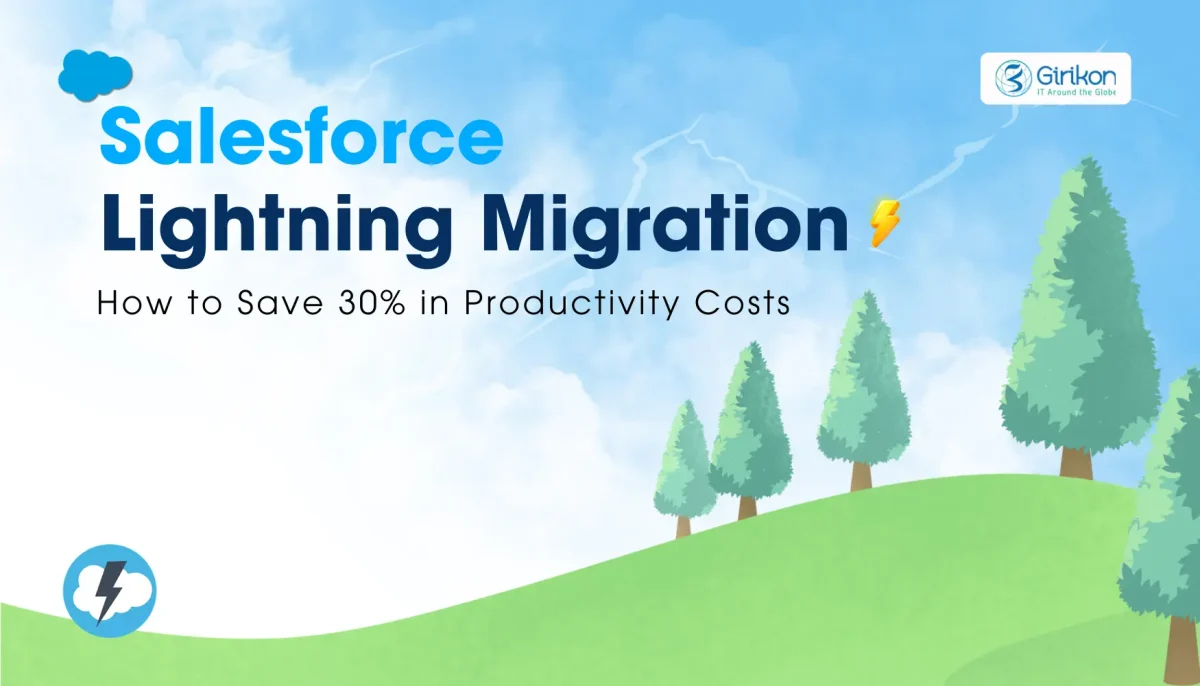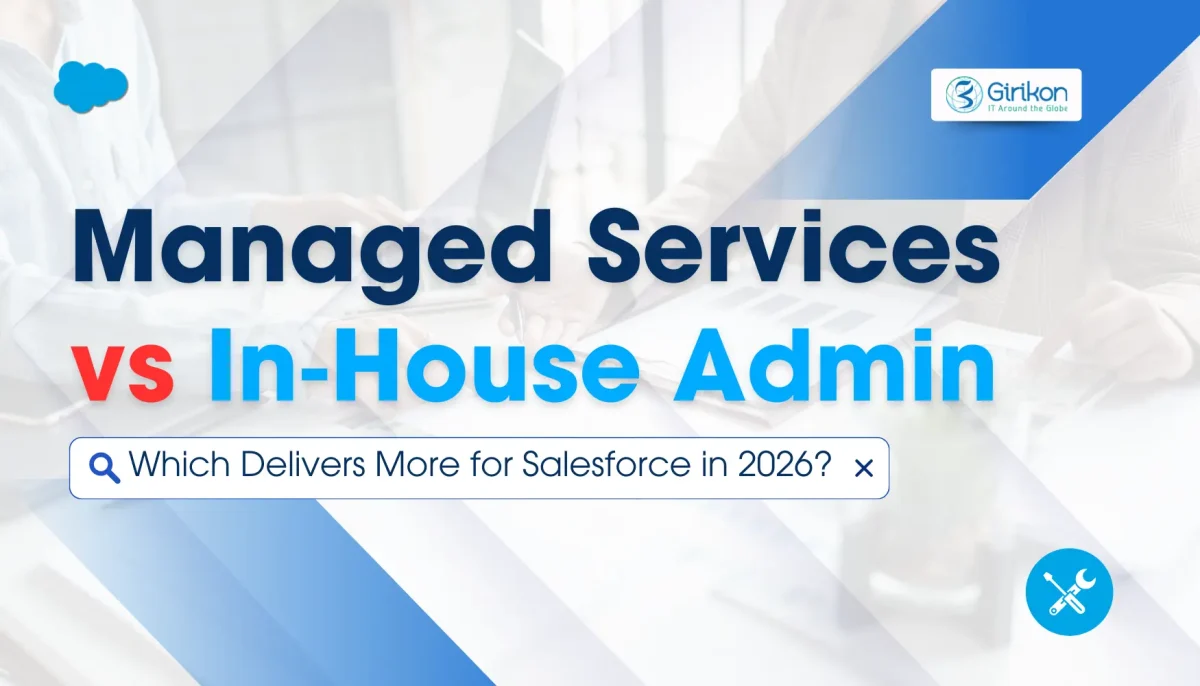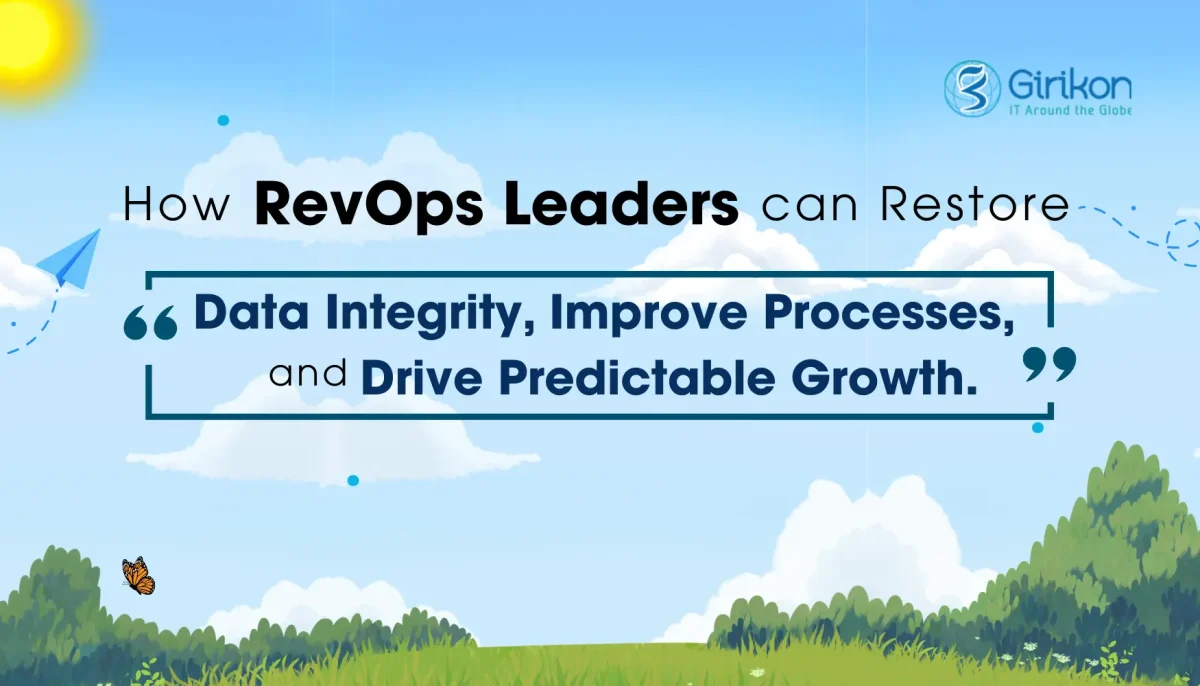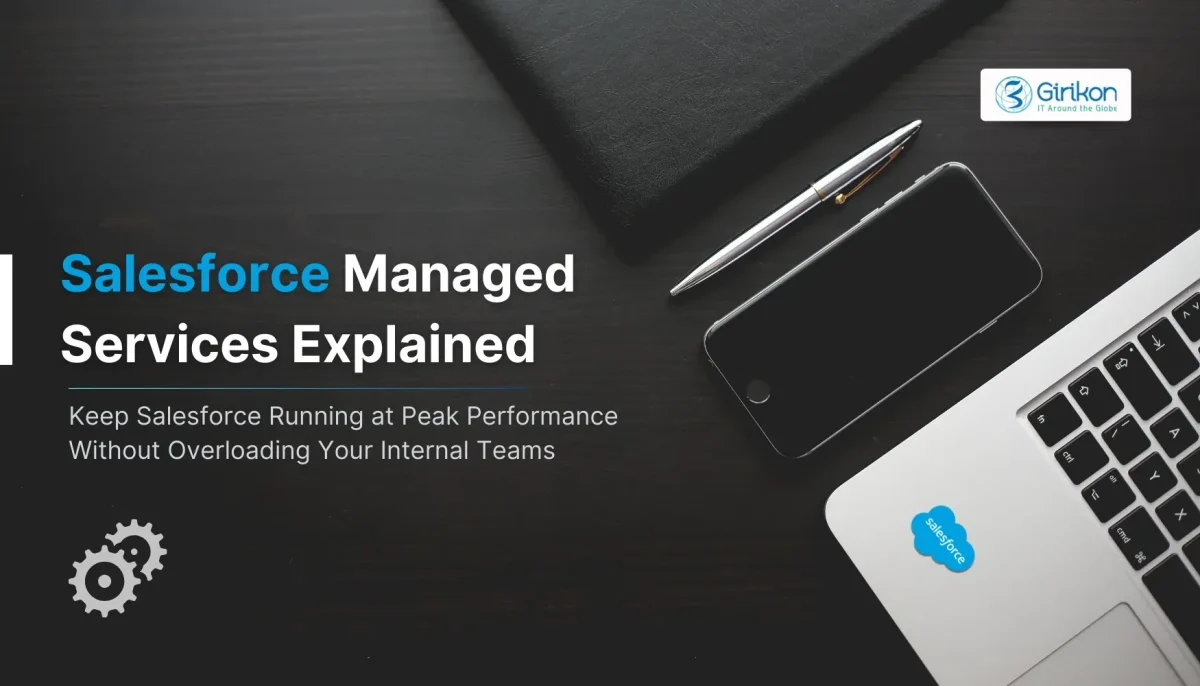To sustain in today’s dynamic business landscape, businesses require transforming themselves digitally to streamline their operations and better engage with their customers. Salesforce – one of the most widely adopted CRM systems across the globe is being utilized by businesses of different sizes and across different industries to manage their processes and make informed decisions.
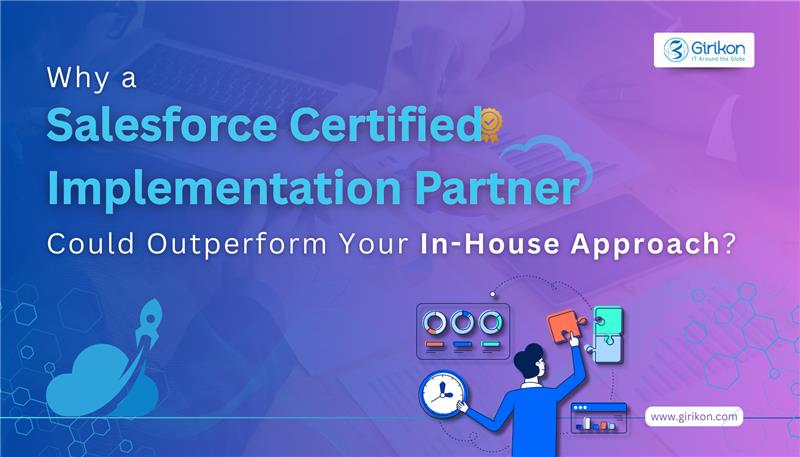
However, the capabilities of the platform make it complex and not so easy to implement. Apart from technical knowledge and business process expertise, implementing the platform demands change management, as well as a strategic roadmap. This is where businesses require making the right move of either employing their in-house experts or a Salesforce Certified Implementation partner.
While the decision may appear to be simple yet making the wrong move could lead to delays, confusion, or a system breakdown that could lead to wasted money and time. While taking an in-house approach has its share of advantages, the reality is that certified partners often deliver smarter, and more sustainable outcome. Let’s understand why:
Depth of Salesforce Expertise: With three major releases every year, policy changes, new features and automation improvements are constant. Staying updated for an in-house team can become intimidating.
- In-house challenge: Internal teams must manage multiple responsibilities including handling IT operations, user support, system maintenance and other platforms. Consequently, specialized expertise might lag.
- Partner advantage: Certified partners focus just on Salesforce. Their consultants typically hold multiple certifications spanning various cloud solutions, and industry solutions and stay ahead of every change.
Accelerated Time-to-Value: Every delay in the platform's implementation leads to reduced ROI. In-house teams usually struggle to stay on track due to competing priorities, unanticipated barriers etc., that add to the timeline.
- Challenges with In-House Execution: In the absence of a structured approach, teams risk over-customization, ignoring key reliabilities, or reworking fallacious designs.
- Partner Advantage: Implementation partner Salesforce bring to the table agile methods, proven framework and ready-to-use accelerators. Their experience in dealing with common challenges and access to pre-developed assets ensure quicker, hassle-free delivery that too without much effort.
Reducing the Risk of Failure: Studies conducted reveal that a large share of CRM implementations fails or underdeliver completely due to weak adoption, poor business alignment, or technical missteps. Beyond wasted investment, a failed Salesforce rollout can damage internal trust in the platform.
- In-House Risks: Internal teams often over-customize, creating upgrade headaches, or bypass governance processes, which results in inconsistent data and low user adoption.
- Partner Safeguards: Certified partners apply structured governance models, enforce data quality standards, and drive adoption strategies. They balance customization with configuration, ensuring Salesforce remains scalable, upgrade-ready, and trusted across the organization.
Access to Specific Expertise: Salesforce isn’t a universal platform. It can be tailored to meet the unique needs of an organization.
- In-house Loopholes: While internal teams are well acquainted with your business, they often lack the vision into how peers in your industry are maximizing the platform.
- Partner Expertise: Certified partners frequently focus on specific industries thereby bringing with them industry accelerators, compliance expertise, and preconfigured solutions tailored to your sector.
Change Management: Embracing a new technology is often more complicated than the technology itself. A Salesforce implementation delivers results only if people use it effectively.
- In-house challenge: IT-oriented initiatives tend to emphasize features and over adoption. Without strong communication, training, and change management, users often rely on old tools.
- Partner advantage: Expert partners introduce change management into their approach. They hold workshops, create dashboards, and deliver tailor-made training for all frontline users to ensure long-term success.
Long-Term Cost Efficiency: While using the expertise of your in-house team might appear more cost-effective, yet, the hidden costs tell an altogether different story.
- In-house costs: Lengthy timelines, costly mistakes leading to rework, low rate of adoption lead to accumulated in-house costs. Apart from this, drawing and retaining skilled talent is an expensive affair with developers commanding high salaries.
- Partner ROI: While experienced partners might require a higher upfront investment, they help generate greater ROI, reduced errors while building scalable solutions. With their skills and expertise, they help lower the overall cost of ownership by preventing your Salesforce org from decentralizing into a complex web of custom code.
Scalability: As your organization grows, your Salesforce environment must keep pace.
- In-house constraints: Internal teams usually struggle to manage surge in demand. Whether it’s an launching a new product, acquisition or an expansion.
- Partner Advantage: Reliable partners offer expertise on-demand and agile staffing. Whether you require a marketing automation specialist for data migration architect, for a focused project, partners can scale resources up or down—without the long-term costs of adding permanent headcount.
Direct Access to the Salesforce Ecosystem: Certified partners go beyond implementation—they’re a part of the Salesforce network.
- In-house limitations: While your IT team can log support cases or learn through Trailhead, they often lack the ability to escalate issues quickly.
- Partner advantage: Certified partners maintain direct connections with Salesforce Partner Account Managers, early-release programs, and engineering teams. This unlocks faster issue resolution, priority support, and early access to new features.
Objective Perspective: An internal team’s close connection to your organization gives them valuable context—but it can also limit additional thinking.
- In-house bias: Teams often replicate current processes “as-is,” even if those workflows are outdated or inefficient.
- Partner objectivity: External partners bring a neutral viewpoint. They compare your operations with industry best practices and recommend automation opportunities you might overlook.
Future-Proof Your Investment: A successful implementation of Salesforce isn’t all about going live, it’s about creating a platform that grows with your business.
- In-house Challenges: Without proper authority, Salesforce orgs become cluttered over time, with overlapping workflows, duplicate fields, and mounting technical debt that restricts performance.
- Partner Provision: Certified partners build with life span in mind. They establish authority frameworks, CoE Models, clear roadmaps to ensure your business can adopt new capabilities such as Automation, AI and advanced analytics.
Final Words:
For businesses to understand the true value of Salesforce, careful planning, proper execution, and a focus on adoption is required. While internal teams closely understand your business, yet certified partners add the expertise, methodologies, and industry insight, which in-house teams fail to build.
Working with a Salesforce partner isn’t all about deploying a software, it’s about reshaping how your organization sustains in a competitive market. For businesses determined to unlock the true ROI on their Salesforce investment, the answer is hiring the services of one of the best Salesforce consulting partners who delivers results that in-house approaches rarely match.

 +1-480-241-8198
+1-480-241-8198 +44-7428758945
+44-7428758945 +61-1300-332-888
+61-1300-332-888 +91 9811400594
+91 9811400594